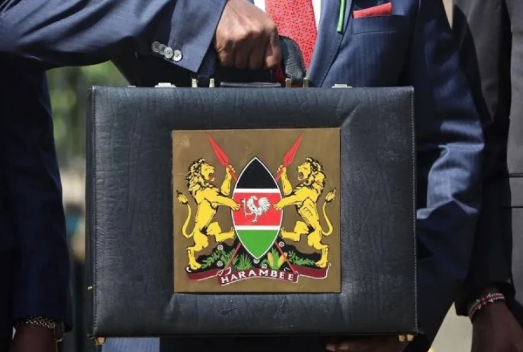The proposed increase in the road maintenance levy (RML) by Ksh.7 per litre, as outlined in the Finance Bill 2024, could potentially lead to higher fuel prices for Kenyans.
This levy, which has remained unchanged since 2017 despite rising fuel costs, is intended to generate funds for the upkeep and maintenance of the country’s road network.
Currently set at Ksh.18 per litre for both petrol and diesel, the RML is collected at the pump and contributes to financing road operation and maintenance nationwide. The proposed adjustment seeks to raise the levy to Ksh.25 per litre, aiming to bolster funding for road repair and maintenance initiatives.
The Finance Committee, which supports this proposal, emphasizes the importance of adequate resources to address the deterioration of road infrastructure, particularly in the aftermath of heavy rains and flooding associated with recent El Niño events.
However, the potential impact of increased fuel prices on the already burdened cost of living for Kenyans remains a concern.
As discussions around the Finance Bill progress, stakeholders will weigh the necessity of this levy adjustment against its potential effects on consumers’ financial well-being and the broader economy.
“To help raise sufficient funds to maintain and repair roads across the country the Committee recommends an increase of the Levy pursuant to Section 3 of the Road Maintenance Levy Fund Act from Ksh.18 to Ksh.25 per litre all petroleum fuels,” read part of the report.
The Finance Committee has acknowledged the need for increased local revenues to fund road projects, particularly in light of the high costs associated with road repair and reconstruction.
This recognition follows submissions by Transport CS Kipchumba Murkomen, who advocated for the adjustment of the road maintenance levy to better reflect the expenses incurred in maintaining and rebuilding roads.
However, despite the proposed increase in revenue earmarked for road projects, the Committee has noted that the overall allocation to the State Department’s budget may decrease.
This suggests a potential reallocation of resources within the budget to accommodate the higher road maintenance levy while maintaining fiscal balance in other areas.
The next steps involve the Parliamentary process, during which Members of Parliament will deliberate on the Finance Bill and decide whether to approve or reject its provisions. Ultimately, the bill’s fate rests on parliamentary approval and subsequent presidential assent before it becomes law.



